TODAY!
Dexcom G7 Receives CE Mark – Next-Generation Continuous Glucose Monitoring System to Revolutionize Diabetes Management was published by BusinessWire.com, 14 March 2022.
DexCom secured CE Mark (Conformité Européenne) for the Dexcom G7 Continuous Glucose Monitoring system for people with diabetes in Europe age two years and older, including pregnant women. With Dexcom G7, real-time glucose readings are sent automatically to a compatible display device. The company said the system also offers a suite of customizable alerts that can warn of high or low glucose levels and help users spend more time in range. Dexcom expects to begin a launch of the system in Europe in the next several weeks.
The Dexcom G7 continuous glucose monitor (CGM) finally received a CE Mark approval. Approval in the US from the FDA seems likely after a recent Dexcom G7 clinical study yielded promising results. The Dexcom G7 promises numerous improvements over its predecessor, including being 60% smaller, delivering a much quicker warm-up time (30 min vs. 120 min for the G6), and combining the transmitter and sensor.
Medical groups say prior authorization burdens persisted during pandemic was reported by Susan Kelly for HealthCareDive.com, 8 March 2022.
Health plans have been expanding the use of prior authorization as a tool to control costs for several years, to the frustration of physicians. MGMA members put the practice at the top of a list of burdensome issues that include COVID-19 workplace mandates, audits and lack of electronic health record interoperability, among other challenges.
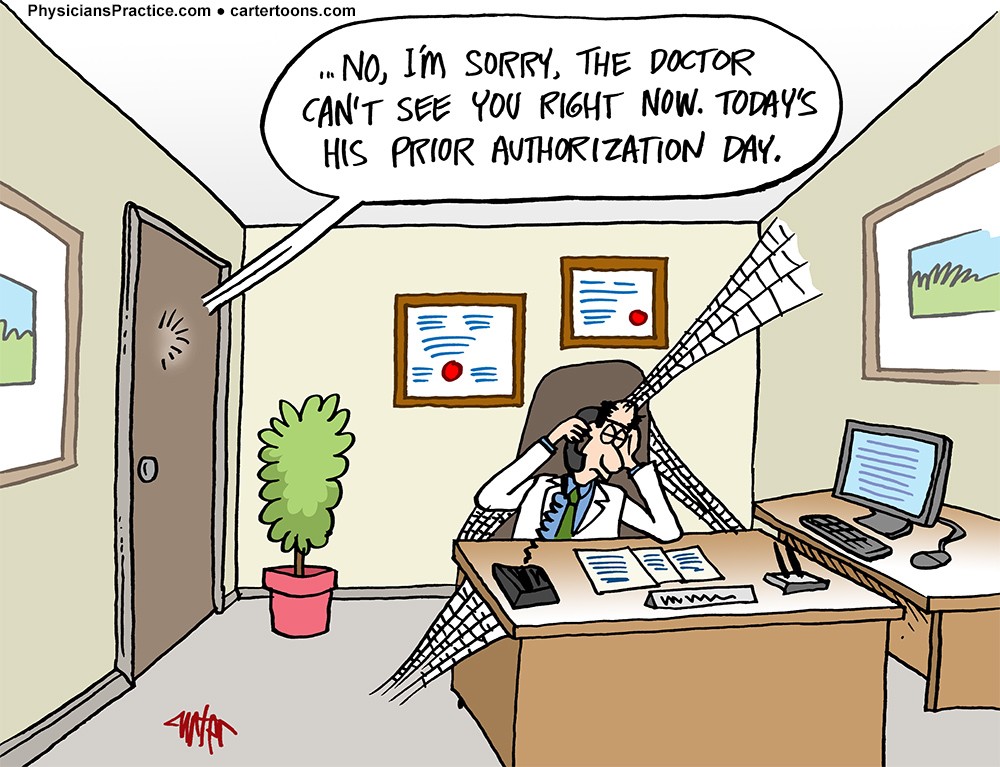 Among 644 medical practices in a new poll, 79% said insurers’ prior authorization requirements had risen over the past year, according to the Medical Group Management Association. That’s down from 90% that said prior authorization demands were increasing in the association’s pre-pandemic survey conducted in September 2019. Even so, another 19% of practices in the latest poll, conducted March 1, reported prior authorization requirements stayed the same in the past year, indicating the burdensome issue for doctors is not improving. Just 2% of medical practices said prior authorization obligations decreased in the past year, the MGMA Stat poll found.
Among 644 medical practices in a new poll, 79% said insurers’ prior authorization requirements had risen over the past year, according to the Medical Group Management Association. That’s down from 90% that said prior authorization demands were increasing in the association’s pre-pandemic survey conducted in September 2019. Even so, another 19% of practices in the latest poll, conducted March 1, reported prior authorization requirements stayed the same in the past year, indicating the burdensome issue for doctors is not improving. Just 2% of medical practices said prior authorization obligations decreased in the past year, the MGMA Stat poll found.
The requirements are a major headache for medical groups. MGMA members surveyed in October rated prior authorization the top regulatory challenge they face, with 88% calling it “very” or “extremely” burdensome.
Does this make you mad? I feel terrible when I have to request a prior auth from my very busy endo!
Read more: Medical groups say prior authorization burdens persisted during pandemic
An oral medication shows benefits treating Type 1 diabetes for at least two years after diagnosis was written by Jeff Hansen for UAB.edu, 3 March 2022.
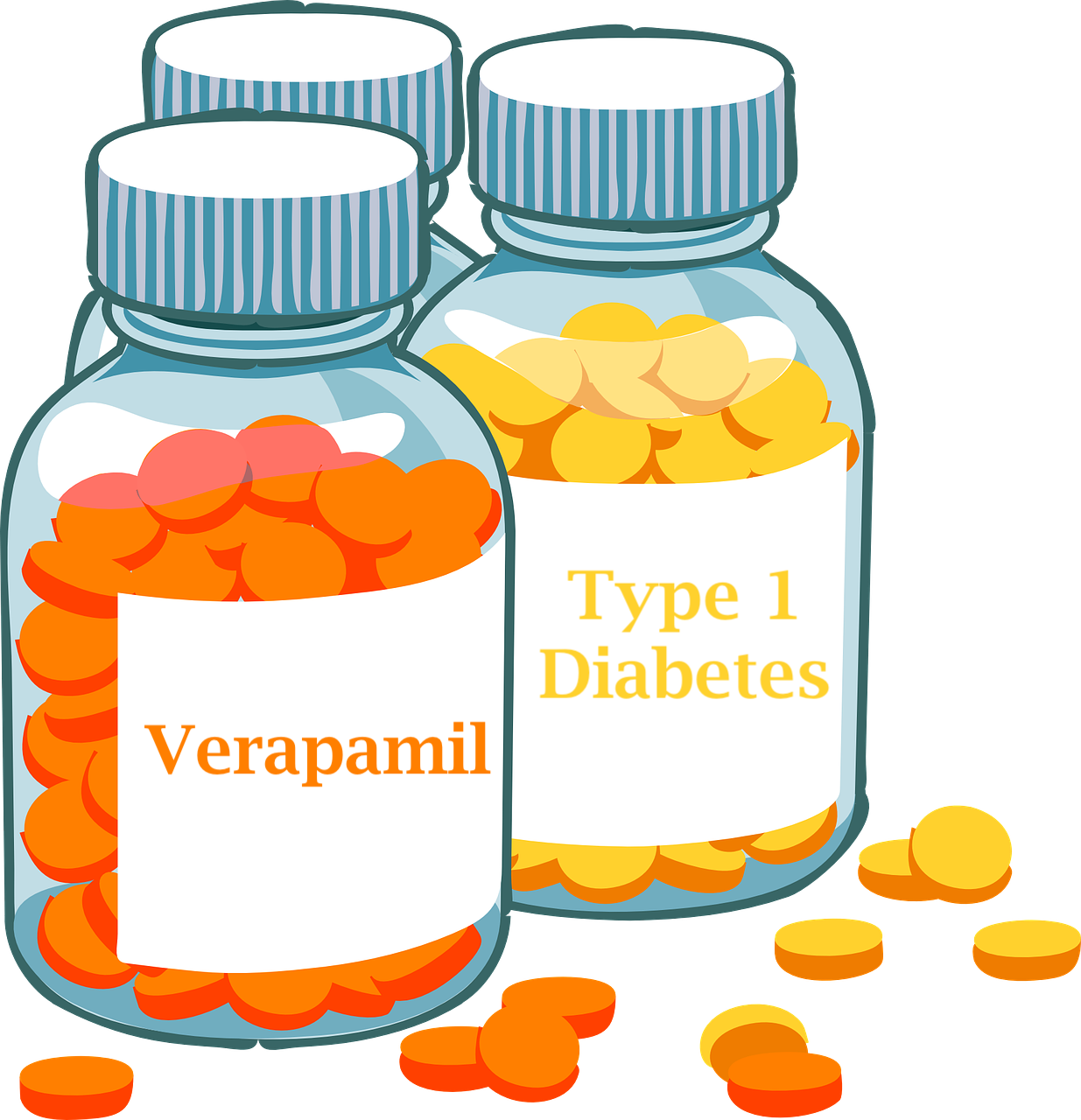 Use of the drug verapamil to treat Type 1 diabetes continues to show benefits lasting at least two years, researchers report in the journal Nature Communications. Patients taking the oral blood pressure medication not only required less daily insulin two years after first diagnosis of the disease, but also showed evidence of surprising immunomodulatory benefits.
Use of the drug verapamil to treat Type 1 diabetes continues to show benefits lasting at least two years, researchers report in the journal Nature Communications. Patients taking the oral blood pressure medication not only required less daily insulin two years after first diagnosis of the disease, but also showed evidence of surprising immunomodulatory benefits.
Continuing medication was necessary. In the two-year study, subjects who stopped daily doses of verapamil at one year saw their disease at two years worsen at rates similar to those of the control group of diabetes patients who did not use verapamil at all.
The suggestion that verapamil might serve as a potential Type 1 diabetes drug was the serendipitous discovery of study leader Anath Shalev, M.D., director of the Comprehensive Diabetes Center at the University of Alabama at Birmingham. This finding stemmed from more than two decades of her basic research into a gene in pancreatic islets called TXNIP. In 2014, Shalev’s UAB research lab reported that verapamil completely reversed diabetes in animal models, and she announced plans to test the effects of the drug in a human clinical trial. The United States Food and Drug Administration approved verapamil for the treatment of high blood pressure in 1981.
In 2018, Shalev and colleagues reported the benefits of verapamil in a one-year clinical study of Type 1 diabetes patients, finding that regular oral administration of verapamil enabled patients to produce higher levels of their own insulin, thus limiting their need for injected insulin to regulate blood sugar levels.
Read more: An oral medication shows benefits treating Type 1 diabetes for at least two years after diagnosis
Anthem plans to change name to Elevance was written by Shannon Muchmore for HealthCareDive.com, 10 March 2022.
 Anthem plans to change its name to Elevance Health, if the move is approved by shareholders. The new name is meant to reflect the company’s offerings beyond traditional health insurance. “Elevance Health’s companies will serve people across the entire care journey, connecting them to the care, support, and resources they need to lead healthy lives,” Anthem CEO Gail Boudreaux said in a statement. Elevance was chosen as a combination of the words “elevate” and “advance.” There will not be any changes to leadership or organizational structure accompanying the new name.
Anthem plans to change its name to Elevance Health, if the move is approved by shareholders. The new name is meant to reflect the company’s offerings beyond traditional health insurance. “Elevance Health’s companies will serve people across the entire care journey, connecting them to the care, support, and resources they need to lead healthy lives,” Anthem CEO Gail Boudreaux said in a statement. Elevance was chosen as a combination of the words “elevate” and “advance.” There will not be any changes to leadership or organizational structure accompanying the new name.
This is the second name change for Anthem in the past decade. Prior to 2014, the company was known as WellPoint, and was created by the merger of health benefits giants Anthem and WellPoint in 2004.
Read more: Anthem plans to change name to Elevance
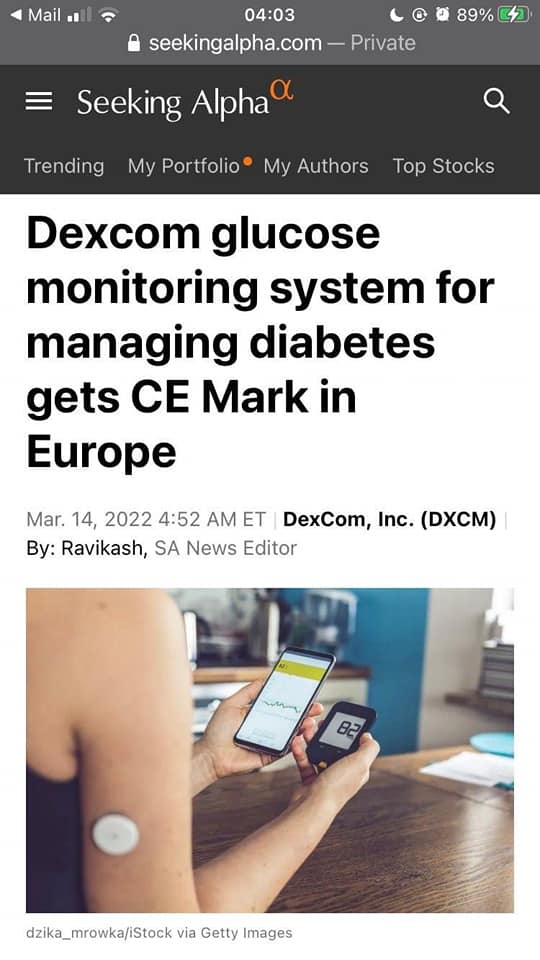
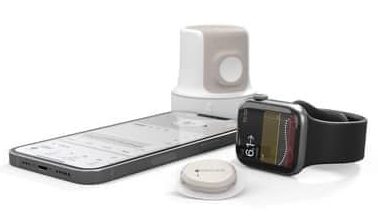

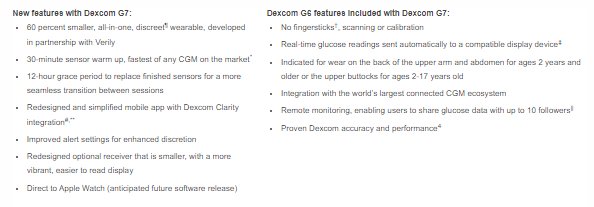


So much to comment on. The ANthem name change has been kicking around Indianapolis for several months now. At first denied, then confirmed, then said to be maybe. I would say likely. However, I am told their suite at the 500 is still in the name of Anthem.
If they still entered a car, we would know for certain by now.
The new Dexcom looks wonderful; I can’t wait. I hear it has a built-in 10-day transmitter No extensions ever. Maybe a little greedy on the extension thing, but they have been forever, so what else is new?